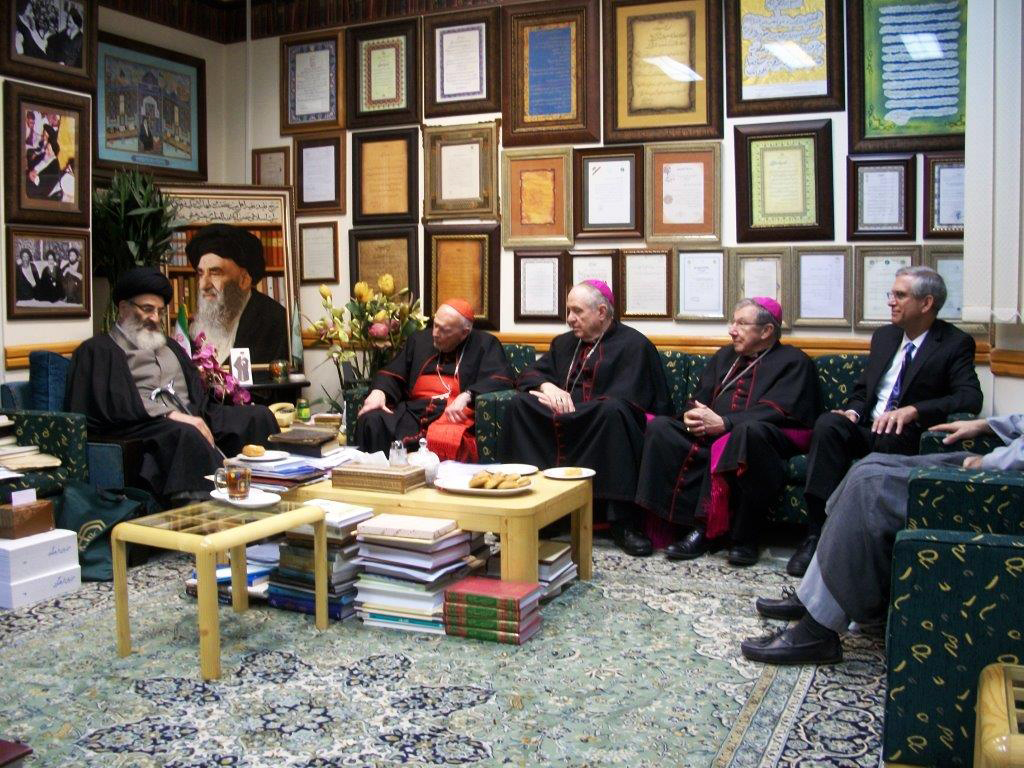
WASHINGTON (CNS) — A joint declaration by two U.S. Catholic bishops and two Shiite Islam religious leaders from Iran decries the use, and the threat of use, of weapons of mass destruction
“Foundational moral values” shared by both Catholics and Shiite Muslims “unite us in raising fundamental moral questions regarding weapons of mass destruction,” said the declaration, which was issued June 14 in Washington.
“Shia Islam opposes and forbids the production, stockpiling, use and threat to use weapons of mass destruction. Catholicism is also working for a world without weapons of mass destruction and calls on all nations to rid themselves of these indiscriminate weapons,” the declaration said.
“We call on all societies and persons to respect religion and its role in sharing moral guidance in the public square,” said the declaration, titled “In the Name of God, the Compassionate, the Merciful.”
The statement took shape in the weeks after a visit by a delegation from the U.S. Conference of Catholic Bishops to Iran in March.
The Catholic signers of the declaration were Bishop Richard E. Pates of Des Moines, Iowa, chairman of the U.S. bishops’ International Justice and Peace Committee, and Cardinal Theodore E. McCarrick, retired archbishop of Washington.
Signing the declaration from Iran’s Shiite Muslim community were Ayatollah Ali-Reza A’arafi, senior member of the Supreme Council of the Society of Qom Seminary Scholars and president of Al-Mustafa International University; and Abdul-Majid Hakim-Elahi, director of the international affairs office of the Society of Qom Seminary Scholars.
“As religious leaders, we condemn all forms of disrespect for the religious traditions of others. Just as importantly, we commit ourselves to active interreligious dialogue that transcends governments and national boundaries and serves the common good of the whole human family. It is our mutual intention to engage in a sustained dialogue based on our shared values,” the declaration said.
“As religious leaders, we condemn all forms of disrespect for the religious traditions of others,” said the joint declaration. “Just as importantly, we commit ourselves to active interreligious dialogue that transcends governments and national boundaries and serves the common good of the whole human family.”






